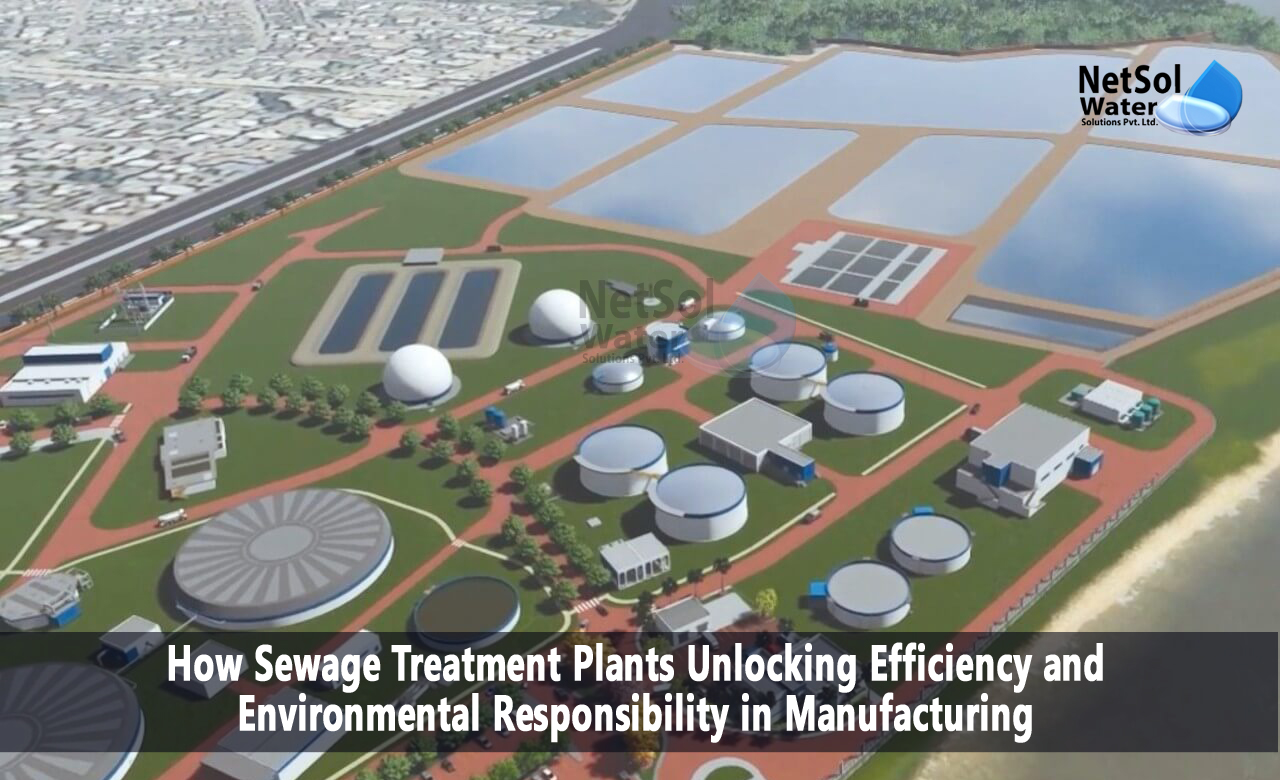How STP Plants Unlocking Efficiency and Environmental Responsibility?
In the pursuit of sustainable manufacturing, companies are increasingly recognizing the need to integrate environmentally responsible practices into their operations. Among the many strategies available, the implementation of sewage treatment plants stands out as a powerful solution. These plants provide manufacturers with the means to effectively manage wastewater, unlocking both operational efficiency and environmental responsibility.
In this blog post, we will explore how sewage treatment plants contribute to efficiency gains and environmental stewardship in the manufacturing industry.
1- Streamlined? Wastewater Management:
Wastewater management is a critical aspect of manufacturing operations, and sewage treatment plants play a pivotal role in streamlining this process. Instead of relying solely on external wastewater treatment facilities, manufacturers can install on-site treatment plants to efficiently manage their own wastewater. This decentralization reduces dependence on third-party services, minimizing delays, transportation costs, and potential bottlenecks. By taking control of their wastewater management, manufacturers gain operational flexibility and enhanced efficiency.
2- Resource Conservation and Reuse:
Sewage treatment plants enable manufacturers to conserve resources by treating and reusing wastewater within their operations. Treated water can be repurposed for non-potable applications, such as industrial processes, cleaning, or irrigation. This reduces the reliance on freshwater sources and minimizes the need for additional water procurement. By recycling water on-site, manufacturers contribute to water conservation efforts and demonstrate a commitment to sustainable resource management.
3- Environmental Compliance and Risk Mitigation:
Environmental regulations and compliance requirements are becoming increasingly stringent, placing a greater emphasis on responsible wastewater management. Sewage treatment plants allow manufacturers to meet these standards by effectively treating wastewater before discharge. By removing contaminants and pollutants, manufacturers reduce the environmental impact of their operations and mitigate the risk of non-compliance fines and penalties. Implementing sewage treatment plants demonstrates a proactive approach to environmental responsibility and helps protect the surrounding ecosystem.
4- Energy Generation and Cost Reduction:
Sewage treatment plants offer the opportunity for energy generation and cost reduction through resource recovery. Anaerobic digestion, a process commonly used in sewage treatment, converts organic matter into biogas, a renewable energy source. Manufacturers can harness this biogas to generate heat and electricity, reducing their reliance on conventional energy sources and lowering energy costs. By turning wastewater into an energy asset, sewage treatment plants contribute to cost savings and enhance overall operational efficiency.
5- Enhanced Corporate Image and Sustainability Credentials:
In an era of increasing environmental awareness, companies that prioritize sustainability gain a competitive edge. The integration of sewage treatment plants allows manufacturers to enhance their corporate image and strengthen their sustainability credentials. By demonstrating a commitment to responsible wastewater management, manufacturers showcase their dedication to environmental stewardship and sustainable practices. This, in turn, resonates with environmentally conscious consumers, investors, and stakeholders, opening up new business opportunities and partnerships.
6- Innovations and Collaborations:
The implementation of sewage treatment plants often fosters innovation and collaboration within the manufacturing industry. Manufacturers, technology providers, and research institutions can collaborate to develop and implement advanced treatment technologies, leading to continuous improvements in efficiency, effectiveness, and environmental performance. The sharing of knowledge and best practices promotes industry-wide progress in sustainable wastewater management.
Conclusion:
Sewage treatment plants offer manufacturers a pathway to unlock efficiency gains and environmental responsibility in their operations. By streamlining wastewater management, conserving resources, ensuring compliance, and generating renewable energy, these plants contribute to sustainable manufacturing practices. Moreover, they enhance corporate image and provide opportunities for innovation and collaboration. As companies strive to improve their operational efficiency and environmental footprint, sewage treatment plants emerge as indispensable tools in achieving both efficiency gains and environmental responsibility in the manufacturing industry.
Netsol Water is Greater Noida-based leading water & wastewater treatment plant manufacturer. We are industry's most demanding company based on client review and work quality. We are known as best commercial RO plant manufacturers, industrial RO plant manufacturer, sewage treatment plant manufacturer, Water Softener Plant Manufacturers and effluent treatment plant manufacturers. Apart from this 24x7 customer support is our USP. Call on +91-9650608473, or write us at enquiry@netsolwater.com for any support, inquiry or product-purchase related query.



